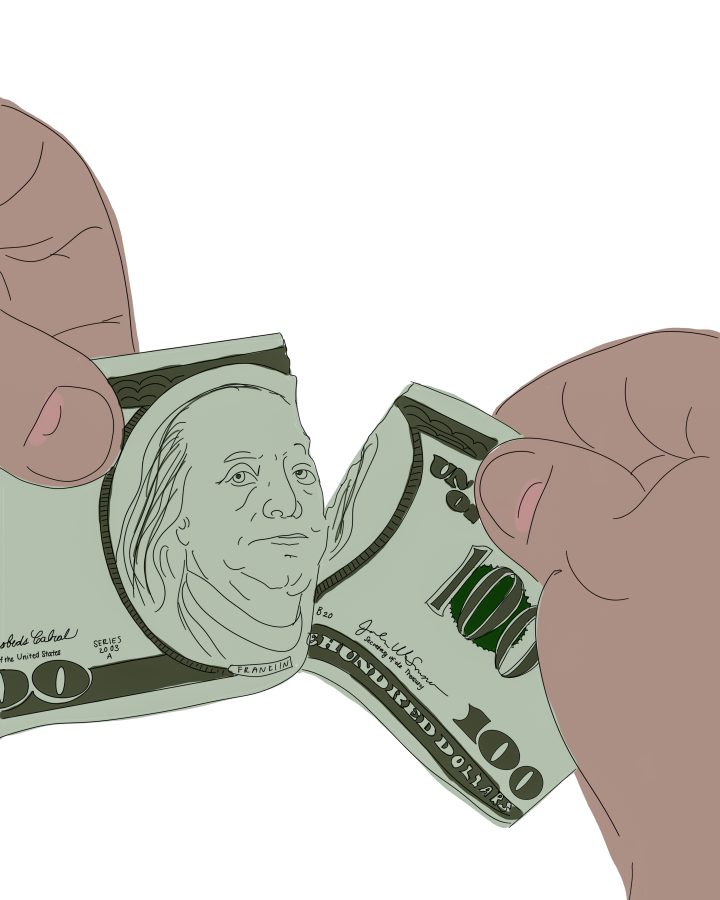For centuries, the United States and similar Western capitalist nations have pushed upon their citizens that capitalism is a free, fair, and open economic system that allows citizens to move freely from a lower socioeconomic status to a higher one. While many people, including myself, have in the past believed this notion, clear social, political, and economic indicators make it quite clear that although capitalism is a free-flowing economic system, and indeed does respect individual liberties, the long-lasting ramifications of capitalism have deeply stained the social fabric of the United States. While capitalism does respect economic freedom of choice, the improper implementation of capitalism has left the United States with a chasm of economic inequality from sea to shining sea.
The United States does not have capitalism. What we have now is “crony capitalism.” Investopedia defines crony capitalism as “A capitalist society that is based on the close relationships between business people and the state. Instead of success being determined by a free market and the rule of law, the success of a business is dependent on the favoritism that is shown to it by the government in the form of tax breaks, government grants, and other incentives” (1). This system of crony capitalism has created awful phenomena such as the military-industrial complex. As a result of the corrupt nature of our government, large multi-national companies have strong ties to the government, and these large companies are able to influence the government to do its bidding. It is for that reason that the United States does not actually have a truly capitalist economy. For this article, I will be discussing how and why I think the current system of capitalism is broken; when I refer to capitalism, I am discussing crony capitalism, which capitalism inevitably decays into.
For starters, by suggesting capitalism is broken, I am not advocating for the implementation of socialist economic and political policy. Rather, I am advocating for a change in capitalism that occurs on the individual level rather than a political level. It is my belief that change occurs best “bottom to up” rather than “top-down,” meaning that it is only through changes that occur from within society and make their way up to powerful levels of society that we can restructure a fundamentally corrupt system. When we can identify bad actors within our society, we can better fight against the structures that continue to oppress our economic situation.
Traditionally, economic theories existed on a spectrum. On the one end, we have anarchical capitalism, no government and economic activity occurring with no regulations. On the other end, authoritarian communism, a strong government that controls every part of economic activity. Every nation falls somewhere on this spectrum, some falling closer towards the communist side, such as the Democratic People’s Republic of Korea and China. While others fall on the side closer to the other side, such as the United States. It is no surprise that the United States falls strongly towards the capitalist side, which has seen the United States be one of the strongest economic powerhouses to date.
Our economy is broken because, despite our nation’s vast economic resources and natural resources, we have extreme income and wealth inequality. According to the Pew Research Center, “The wealth gap between America’s richest and poorer families more than doubled from 1989 to 2016” (2). The Pew Research Center also concluded that, “Middle-class incomes have grown at a slower rate than upper-tier incomes over the past five decades” (3). The Hill writes, “The 62 richest people in the world have as much wealth as the bottom 50 percent of the world, roughly 3.6 billion people. The wealthiest 1 percent of the global population have as much wealth as the other 99 percent of the world’s population.” This type of economic inequality is disgusting and must be addressed in some fashion. Additionally, this unfortunate reality suggests that although the Middle Class has grown, the middle class has not grown at the same rate as the higher classes of the United States, and this is unacceptable.
Understand this: Politicians are not on your side. Politicians such as Bernie Sanders, Alexandria Ocasio-Cortez, Ted Cruz, or Donald Trump, are not looking out for your best interests. Regardless of political affiliation, politicians are some of the most corrupt, power-hungry, and money-hungry individuals our society has to offer. And while politicians on both sides may claim to be populists, they are only looking out for their best interests. The cure to the ails of capitalism does not exist within the halls of Congress, but rather through a fundamental restructuring of our society that decreases the extreme importance of money in our lives. Capitalism is broken, and while an alternative that does not involve increased government seems impossible, I believe there is a way to decrease the wealth and income inequality in the United States that does not involve forceful, violent, and oppressive redistribution of wealth.
Based on my economic and political research there are several things abundantly clear. Firstly, poor people deserve healthcare, but should the government provide it? No. The government is inefficient and ineffective and would not do a good job of providing healthcare to the most vulnerable of our society. Secondly, the wealth gap in the United States is unethical, and although many billionaires created their own wealth and use it to invest, their egregious hoarding of wealth while Americans starve is unacceptable. Should the government tax them at 100 percent after they have accumulated over one billion dollars? No. Although I think capitalism is broken, I still am not sure about the cure, and I presume I will not know for a while.
-
https://www.investopedia.com/terms/c/capitalism.asp
-
https://www.pewresearch.org/fact-tank/2020/02/07/6-facts-about-economic-inequality-in-the-u-s/
-
https://www.pewresearch.org/fact-tank/2020/02/07/6-facts-about-economic-inequality-in-the-u-s/





















































